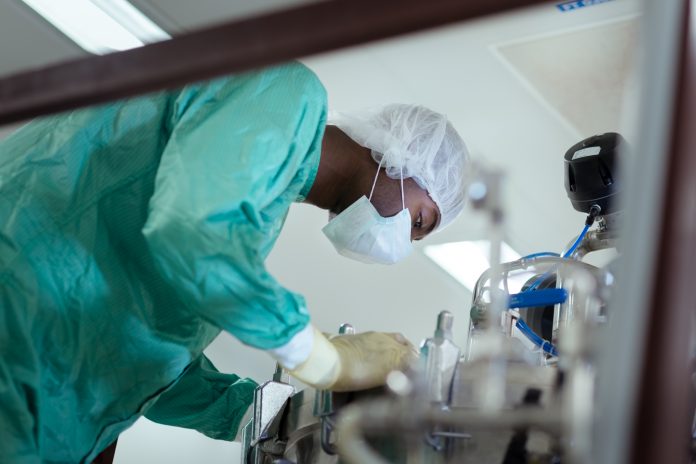The National Institute of Allergy and Infectious Diseases (NIAID) has launched Phase 1 clinical trials for three mRNA HIV vaccines
With mRNA vaccines, Pfizer have dominated global news cycles and the COVID market. The stable use of mRNA across the world has created possibilities for all kinds of treatment, from cancer care to other types of flu shots.
The AIDS epidemic, first beginning in June, 1981, has been ongoing for decades. The potential for a cure has only become a reality in recent times, despite the prior existence of means to control the spread of HIV and lessen infectiousness.
In South Africa for instance, women continue to be disproportionately impacted by the HIV/AIDS crisis – which is still unfolding, globally. Now, mRNA vaccines for treating HIV are on the table.
Pfizer are working on mRNA vaccines for HIV patients
Pfizer are working on three experimental mRNA vaccines for HIV patients. Phase 1 clinical trials are beginning now, with NIAID sponsoring the study, called HVTN 302. The NIAID-funded HIV Vaccine Trials Network (HVTN), based at Fred Hutchinson Cancer Research Center in Seattle, is conducting the trial.
The clinical trial is expected to be completed by July 2023.
“Finding an HIV vaccine has proven to be a daunting scientific challenge,” said Dr Anthony S. Fauci, NIAID director.
“With the success of safe and highly effective COVID-19 vaccines, we have an exciting opportunity to learn whether mRNA technology can achieve similar results against HIV infection.”
So, how could an mRNA HIV vaccine work?
Basically the vaccine delivers a piece of genetic material to the body, which instructs the body to create a protein fragment of a target pathogen – such as a virus. The immune system then recognises and remembers these instructions, which allows it to create a substantial response if that pathogen later appears in the body.
The specific mRNA sequences contained in the vaccines were designed and developed by investigators at the NIAID-funded Scripps Consortium for HIV/AIDS Vaccine Development (CHAVD) at the Scripps Research Institute.
This was done in collaboration with scientists at Cambridge, Massachusetts-based Moderna manufactured the investigational vaccines through a NIAID-supported contract.
The HVTN 302 study will examine these three vaccines:
1) BG505 MD39.3 mRNA;
2) BG505 MD39.3 gp151 mRNA;
And 3) BG505 MD39.3 gp151 CD4KO mRNA.
The vaccine candidates are designed to present the spike protein on the surface of HIV that facilitates entry into human cells, while each experimental vaccine encodes for different, highly related, stabilised proteins.
The team will examine safety and immune responses will be examined via blood and lymph node fine-needle aspiration samples, which will be taken at specified timepoints through the clinical trial.
The 18 to 55 year old groups will be in the trial across 11 sites: Birmingham, Alabama; Boston; Los Angeles; New York City; Philadelphia; Pittsburgh; Rochester, New York and Seattle. None of the three vaccine candidates can cause HIV infection, they just have the instructions for how to defend against the spike protein of the infection.
“With an estimated 1.5 million individuals worldwide acquiring HIV in 2020, it’s crucial that a study like this be done,” said Dr Larry Corey, Principal Investigator of the HVTN, which is based at Fred Hutchinson Cancer Research Center.
“We have been studying various HIV vaccines for decades and the science continues to progress, especially with the major advancements in the COVID-19 vaccines involving the use of the mRNA technology. Applying this technology to HIV vaccine research is a defining moment for the field.”











